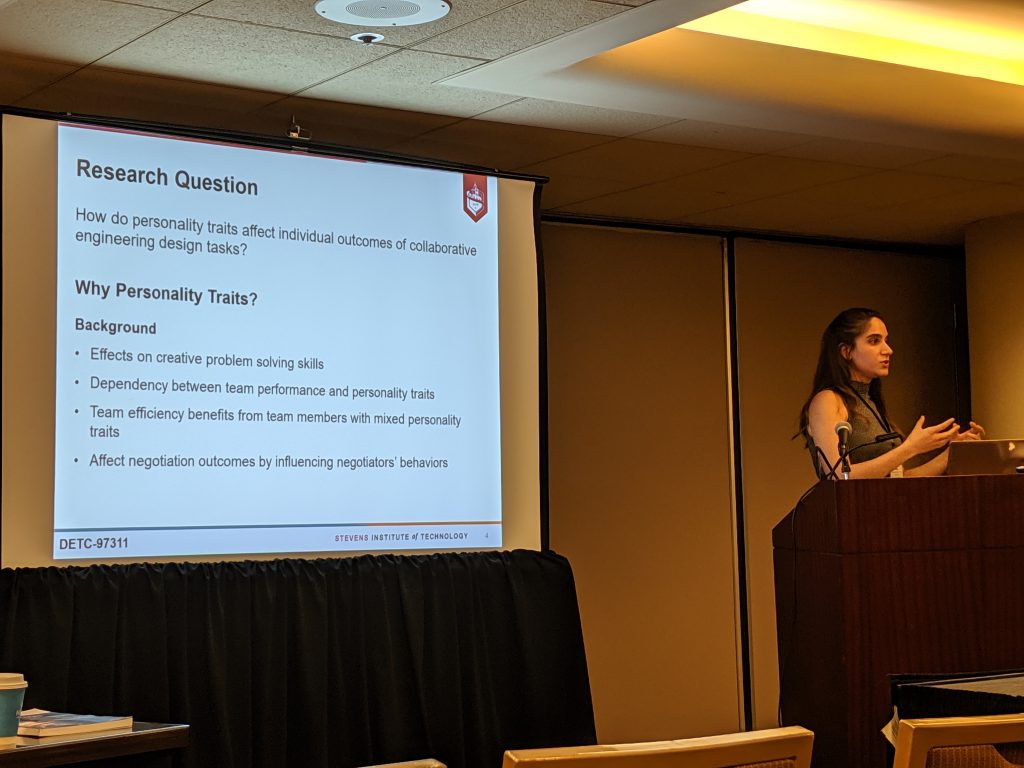Alkim Avsar presented a paper on August 19, 2019 titled “The Effects of Locus of Control and Big Five Personality Traits on Collaborative Engineering Design Tasks with Negotiation ” at the 2019 ASME International Design Engineering Technical Conferences (IDETC) Design Theory and Methodology (DTM) Conference in Anaheim California.

Abstract: Collaborative systems design is a human-centered activity dependent on individual decision-making processes. Personality traits have been found to influence individual behaviors and tendencies to compete or cooperate. This paper investigates the effects of Big Five and Locus of Control personality traits on negotiated outcomes of a simplified collaborative engineering design task. Secondary data includes results from short-form personality inventories and outcomes of pair design tasks. The data includes ten sessions of four participants each, where each participant completes a sequence of 12 pair tasks involving design space exploration and negotiation. Regression analysis shows a statistically-significant relationship between Big Five and Locus of Control and total individual value accumulated across the 12 design tasks. Results show the Big Five, aggregating extraversion, agreeableness, conscientiousness, neuroticism, and intellect/imagination to a single factor, negatively affects individual value and internal Locus of Control positively affects individual value. Future work should consider a dedicated experiment to refine understanding of how personality traits influence collaborative systems design and propose interventions to improve collaborative design processes.
